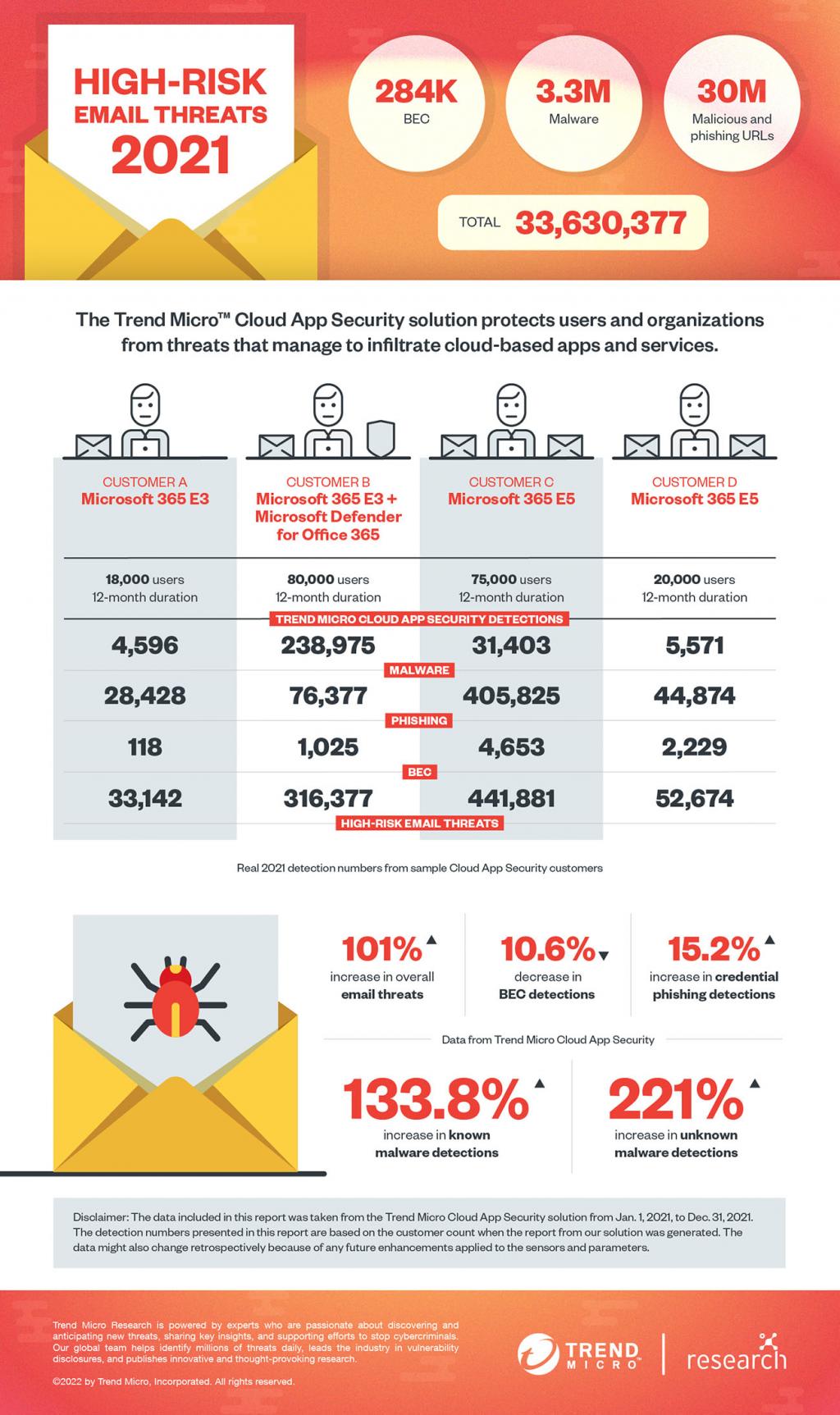33.6 million threats, a 101% increase in one year
During the course of 2021, IT threats posed by e-mails increased by 101% over the previous year, according to the Cloud App Security Threat Report 2021, the last study presented by Trend Micro, a cybersecurity company. E-mails are still one of the main ports of entry for hacker attacks.
“Every year, we witness changes in the cyberthreat panorama and a general increase in the points of entry, but e-mails remain the principal means,” explains Alessandro Fontana, Head of Sales di Trend Micro Italia, interviewed by the ANSA News Agency.
In 2021, 16.5 million phishing attacks were identified and blocked, a 138% increase, mostly related to the hybrid work that continues to represent a security weak point. There were 6.3 million phishing attacks for usernames and passwords, a 15% increase. Moreover, 3.3 million dangerous files were identified, a 134% increase in known threats and a 221% increase in unknown malware.
The risks of smart working for untrained workers is also described in a chapter of DeepCyber, the first CENSIS Report on cybersecurity. In fact, 59.6% of workers use company devices, but 20.1% does not separate the devices used from work from their personal pursuits. This type of behaviour presents an obvious threat to protection and can open dangerous doors to hackers (25.5%). Another area that presents risk concerns how users save their work from home. In fact, 82.1% saves their work on local devices.
True digital transformation, one that also entails a better wellbeing and quality of life, requires a widespread and active culture of security. So, how can this be achieved?
Besides seminars and meetings on digital culture with various geneations (Fully Enjoy the Internet), we are working on the issue of IT security through two specific projects that address the issue from different points of view. One of the main objectives of Project Trust aWare is to improve the ability of European citizens to safeguard their security and privacy with tools developed ad hoc to defend themselves from cyberthreats.
With Microsoft, as part of Programme Ambizione Italia, we are working on training students and youth, in general, also to orient them towards professional courses specialising in IT security.






